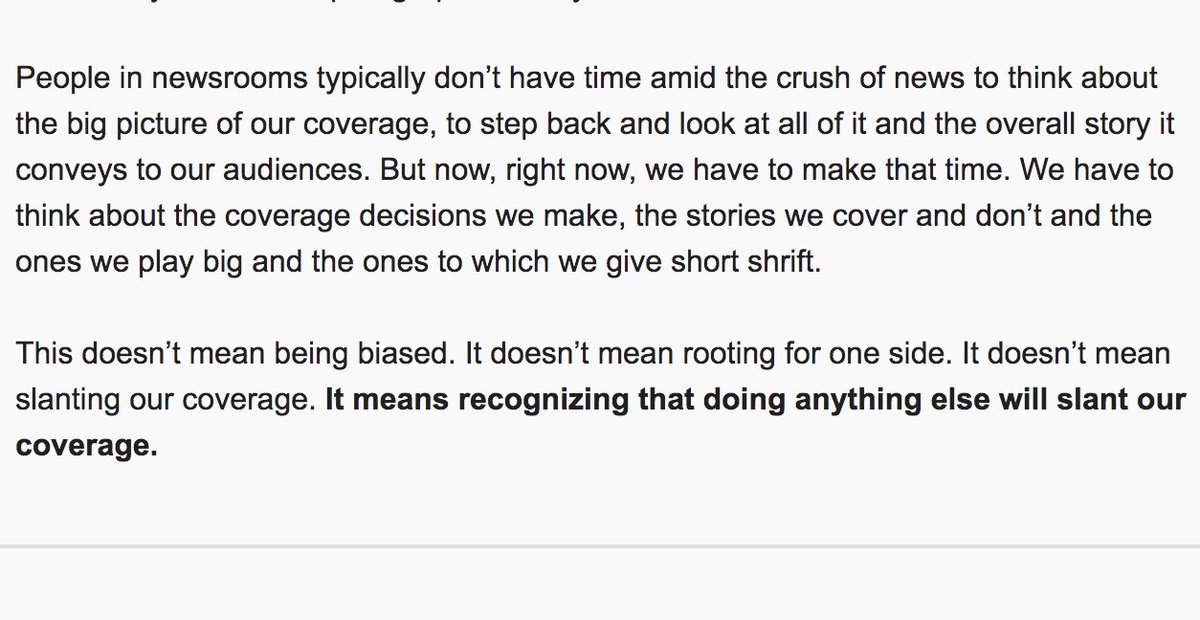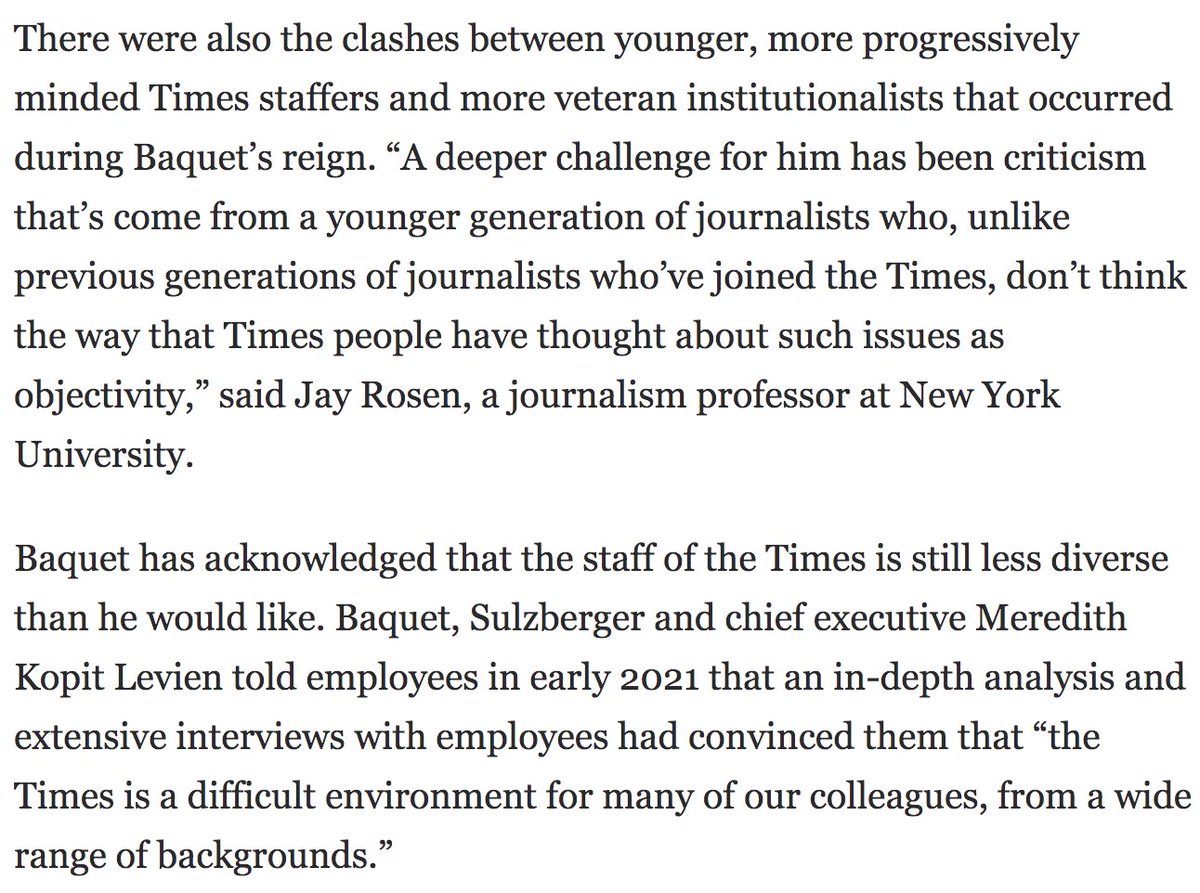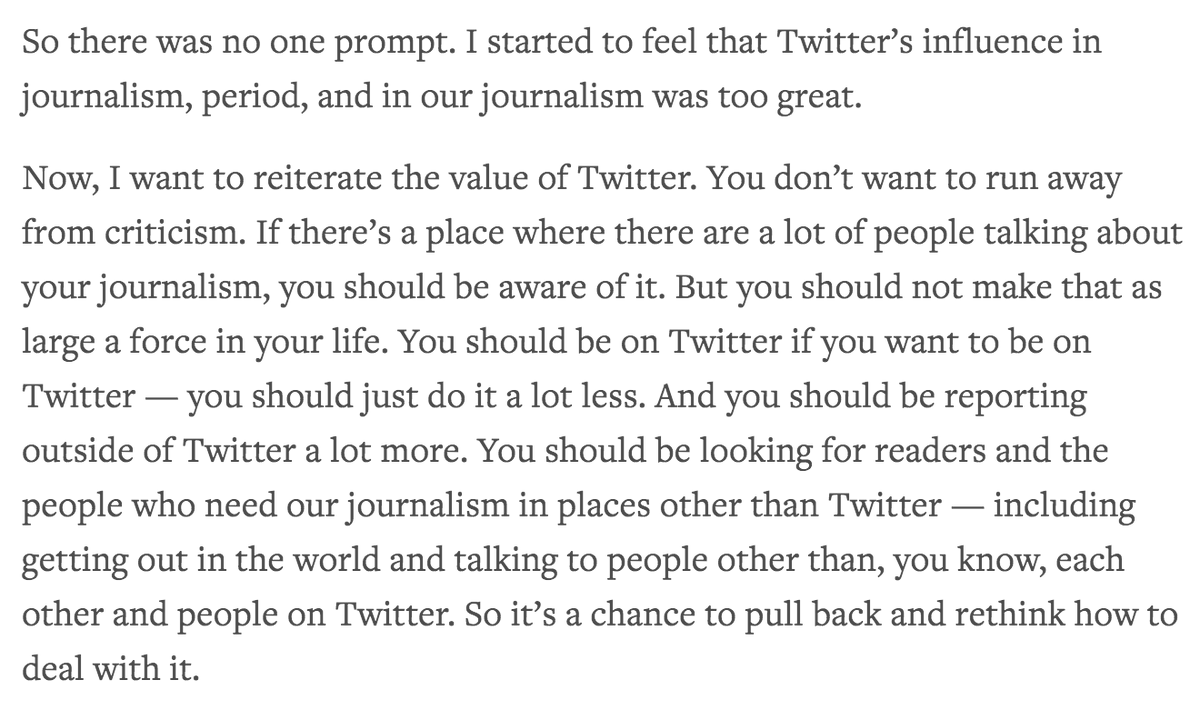
Ever wonder what journalists themselves think about patterns like bothsidezing, he said/she said, leaving it there, and an indifference to creeping fascism?
I interviewed an experienced editor and journalist about all of those things, none of which he denies. THREAD. 1/
I interviewed an experienced editor and journalist about all of those things, none of which he denies. THREAD. 1/
Let me introduce you to @MarkJacob16. He was a newspaper editor for his entire career. At the Chicago Tribune he was nation/world news editor, which meant he edited political stories most nights.
He retired four years ago, and speaks freely. 2/
He retired four years ago, and speaks freely. 2/
For example:
https://twitter.com/MarkJacob16/status/14425879281741537283/
It's one thing when an outside critic (like me) says it. When someone who worked inside newsrooms their entire adult life comes to a conclusion like this, it's different:
And, yes, I asked him if he spoke up while he was still working in journalism. 4/
https://twitter.com/MarkJacob16/status/1442587942933909507
And, yes, I asked him if he spoke up while he was still working in journalism. 4/
I asked @MarkJacob16 about a practice in which he joined: quote a D., quote an R., and you're done.
He said he had erred "in thinking of a news story as a stage that allowed Republicans and Democrats to perform their talking points, rather than as a way to inform readers." 5/
He said he had erred "in thinking of a news story as a stage that allowed Republicans and Democrats to perform their talking points, rather than as a way to inform readers." 5/
"...Owners would like to keep customers of various political stripes paying them money. It’s safer and thus more profitable to avoid coming to conclusions – to produce stories that are in essence 'he says this, she says this, you figure it out yourself.'" —@MarkJacob16 6/
You can read the whole interview with former @chicagotribune and @Suntimes editor Mark Jacob at my site, PressThink. No paywall.
"He used to edit political stories at the Chicago Tribune. Now he says the press is failing our democracy." pressthink.org/2022/06/he-use… 7/
"He used to edit political stories at the Chicago Tribune. Now he says the press is failing our democracy." pressthink.org/2022/06/he-use… 7/
From my interview with a former Chicago Tribune and Sun-Times editor, @MarkJacob16. pressthink.org/2022/06/he-use… 

"Many of us suspected that the Bush administration was lying about Iraqi weapons of mass destruction, but we couldn’t prove it either way. So we published what, in retrospect, were a bunch of government lies."
My new post is an interview with an editor. pressthink.org/2022/06/he-use…
My new post is an interview with an editor. pressthink.org/2022/06/he-use…
• • •
Missing some Tweet in this thread? You can try to
force a refresh






